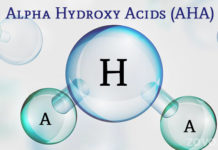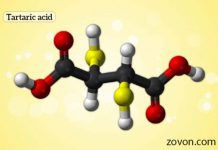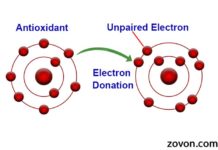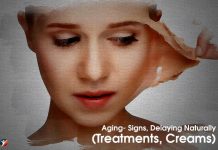
There is always a sense of competition among women. And for the most part, this is about flaunting youthful and flawless skin to leave a lasting impression or make others jealous of one’s look.
Well, it is not just about women. If we look at a bigger picture, it is a general human tendency to look young and attractive. In other words, no one wants to age. But, the bitter reality is that you can not prevent aging. Moreover, several environmental and lifestyle factors further contribute to this, leading to the appearance of premature signs of aging like wrinkles and fine lines.
If you are also one of those, who is struggling with premature signs of aging in your mid-30s or early 40s, you can solve these issues with effective solutions. Numerous beauty creams and antiaging formulations are available in the market to restore the glow and health of your skin.
However, one should never forget that what we eat is also crucial to skin health. Apart from a nutrient-rich diet, numerous dietary supplements or medicines can be used to fulfill the body’s demand to maintain the luster and firmness of the skin.
These supplements are rich in vitamins and minerals. Thus, it gives you a better result within a short duration. Learn more about these medicines for antiaging and regeneration that prevent early signs of aging.
What are Antiaging Medicines?
Antiaging medicines are basically those products that are marketed as antiaging supplements. These products are designed to eliminate the visible signs of premature aging. These medicines may come in various forms, such as capsules, tablets, powder or liquid. The ingredients of the product may include a single nutrient or a blend of minerals, fats, vitamins and plant extracts.
Moreover, with the help of various researches, new ingredients are being introduced from time to time into the marketplace. As a matter of fact, the antiaging medicine industry has witnessed a massive growth over the last decade and generated a revenue around 4 billion USD worldwide in 2017.
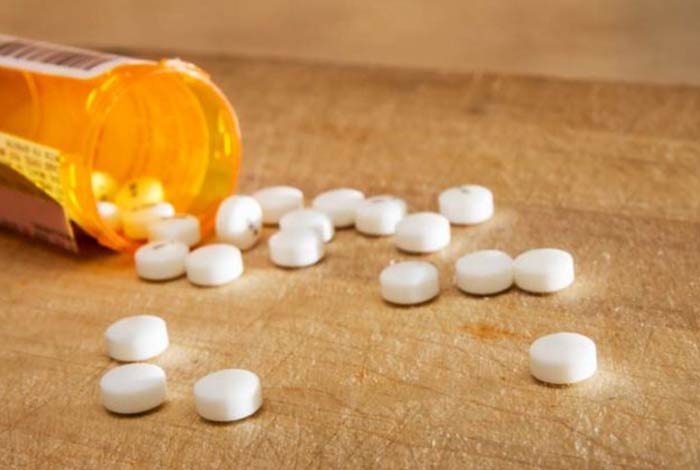 Why Antiaging Skin Supplements?
Why Antiaging Skin Supplements?
While aging is an inescapable process, you may be able to decrease its speed and can even prevent its signs to appear at an early age by ensuring that all the required nutrients are available to your body for carrying out normal body functions as well as the damage prevention, repair and regeneration task.
Ideally, you should get these nutrients from your day-to-day foods. However, in some cases, one or more nutrients might miss in our diet, leading to their deficiency in the body. For instance, a standard American diet lacks fruits and vegetables – a major source for minerals, vitamins and other nutrients. This is where medicines for antiaging comes into play. The supplements can help fill these voids in anyone’s diet.
Several nutrients that you will find in antiaging medicines are also there available in antiaging skincare products. Hence, with the help of bi-directional approach, i.e., nourishing the body externally as well internally, you can improve your skin care regimen and offer appropriate dose of nutrients to your body, including the skin.
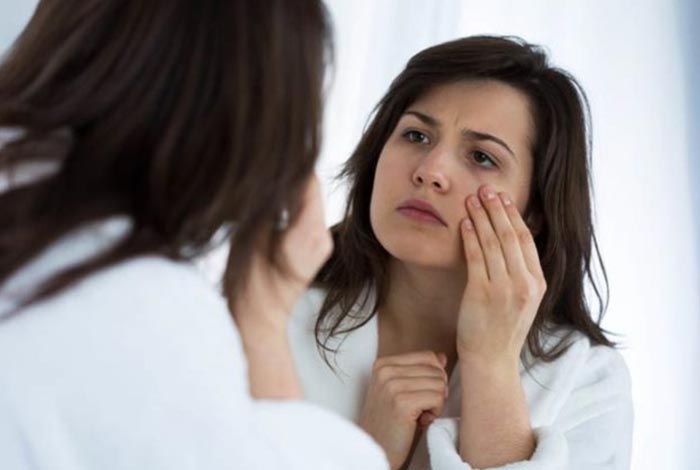 Advantages of Medicine for Antiaging & Regeneration
Advantages of Medicine for Antiaging & Regeneration
The primary advantage of taking antiaging medicines is for their antioxidant property. As the name suggests, antioxidants are those entities that act against oxidation. To put it in a simple way, antioxidants reduce, neutralize and eliminate the free radicals; thereby, slowing down the process of internal rusting as we age. This way it helps protect different organs, including the skin. That’s why antioxidants are so important in antiaging supplements.
Apart from providing antioxidants, many antiaging supplements also have substances that support the production of collagen and elastin, provide anti-inflammatory benefits to the skin, improve or normalize skin cell turnover, hydrate the skin, accelerate the healing of blemishes and protect the skin from the harmful UV rays.
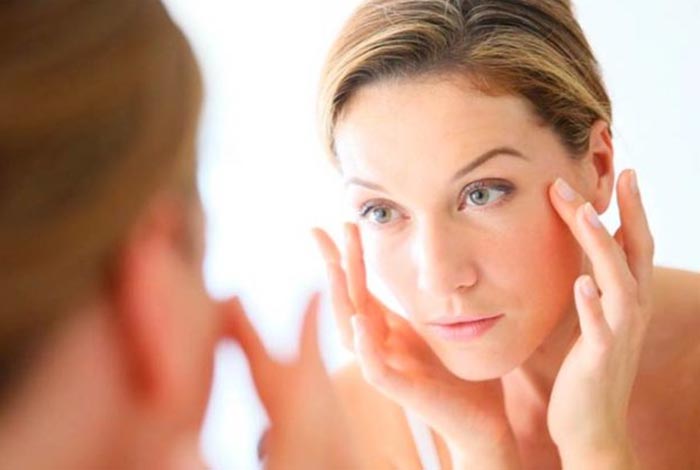
What are the Best Anti-Aging Skin Supplements?
Supplements or medicines for antiaging & regeneration usually fall into five major categories mentioned below:
1. Vitamins
2. Minerals
3. Omega-3 fatty acids
4. Probiotics
5. Phytonutrients
Let’s have a detailed discussion on these above-mentioned categories of antiaging supplements.
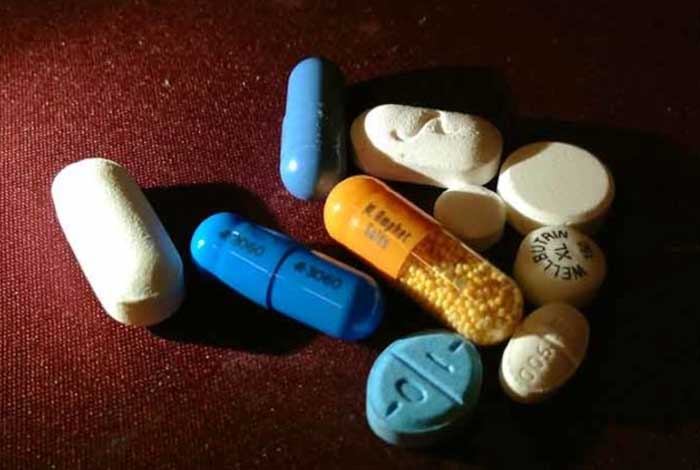
Vitamins
Vitamins constitute an important class of nutrients that can be easily found in fruits, vegetables, nuts & seeds, legumes, grains, spices, meat and dairy products. In case you are not getting the required amount of vitamins from foods, you should go for their supplements.
- Vitamin A: It plays a very important role in the body to support the normal skin cell turn over and repair the damaged skin tissues. Derivatives of Vitamin A, like retinol, are often used in topical skin care products to cleanse and smoothen the skin. Also, it is very important for eye health.
- B-Complex: The Vitamin B family supports healthy nerves, hair, liver, skin, eyes and mouth. Two of the these vitamins – pantothenic acid (B5) and biotin (B7) – are essential for smooth skin.
- Vitamin C: Also known as ascorbic acid, vitamin C has exceptional antioxidant properties. This vitamin is has role in stabilizing the collagen production in the skin. It also promotes the healing of blemishes and discoloration of skin.
- Vitamin E: Vitamin E is basically a group of compounds. Some of these compounds are known to improve the skin’s ability to fight against UV rays. Other compounds in this group have more of cholesterol-lowering, antioxidant and anticancer effects.
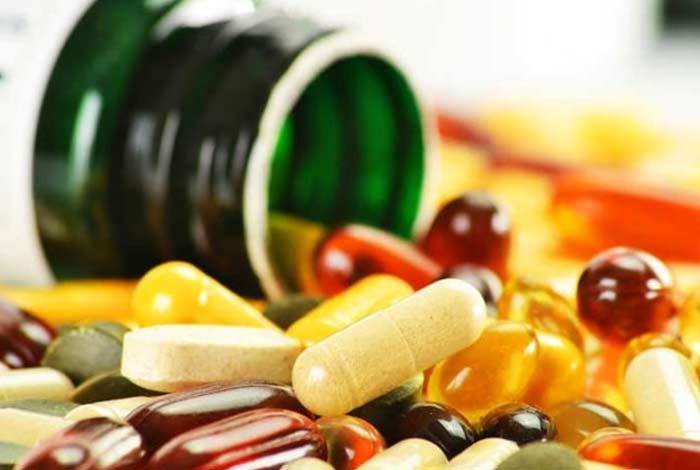
Minerals
Dietary minerals are vital for health and can be easily found in fruits, vegetables, grains, legumes, spices, nuts & seeds, dairy products and other foods from animal sources.
- Copper: It works in balance zinc and vitamin C. Copper is very important for the production of collagen – a protein that keeps your skin wrinkle free and elastic.
- Zinc: This mineral acts as an antioxidant and has a role in collagen production. It promotes the healing process of damaged skin. Zinc is an important constituent of many supplements because it provides strength to skin tissues & repair the damaged ones. It also helps to normalize the production of sebum in the skin.
- Selenium: Selenium prevents the oxidation of fats and protects vitamin E. Thus, it helps to keep the skin soft and supple.
Omega-3 Fatty Acids
Omega-3 fatty acids can be divided into three categories – alpha-linolenic acid (ALA), eicosapentaenoic acid (EPA) and docosahexaenoic acid (DHA). While ALA comes from plant sources like flax, hemp and chia seeds, EPA and DHA are found in krill oil and coldwater fish.
- Flax Seed Oil: It is an exceptional source of healthy fats, and helps maintain the skin healthy and flawless. Flax seed oil has omega-3 essential fatty acid – ALA. It keeps the skin hydrated and helps retain the moisture.
- Fish Oil: Fish oil is known for its anti-inflammatory properties. It also lubricates the skin from the inside and protect from skin cancer.
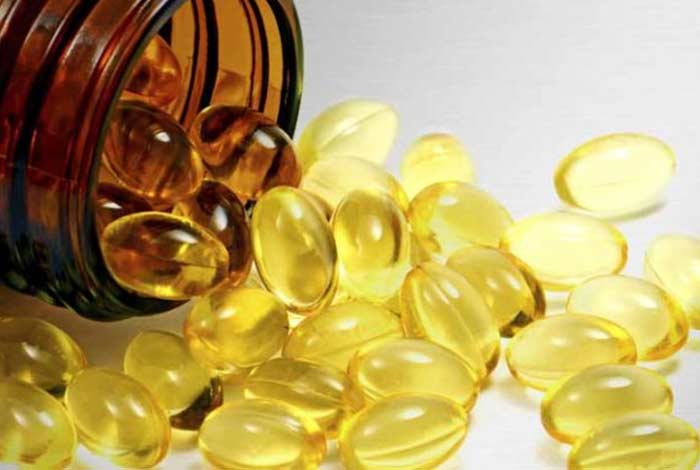
Probiotics
Probiotics are useful bacteria that enhance the gut health, support the digestive system and improve immunity. Probiotics can be naturally found in fermented foods like yogurt, sauerkraut and miso. Several studies indicate that probiotics supplements can help improve skin barrier function and protect the skin from UV radiation. A few probiotics is also known to reduce the problem of acne.
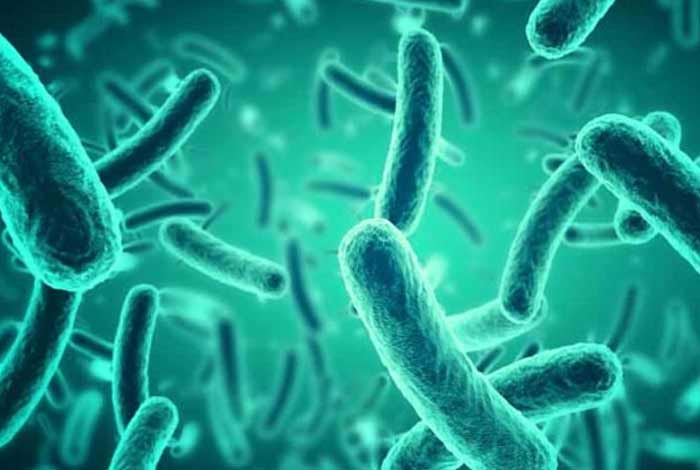
Phytonutrients
It is a natural substance present in certain plants. These are said to be very beneficial for human health and help prevent various diseases. It is found in vegetables, grains, fruits, nuts, legumes, teas and several spices. Primarily, phytonutrients protects the plants from harmful oxidation, insects, viruses and bacteria. These are considered beneficial for skin.

